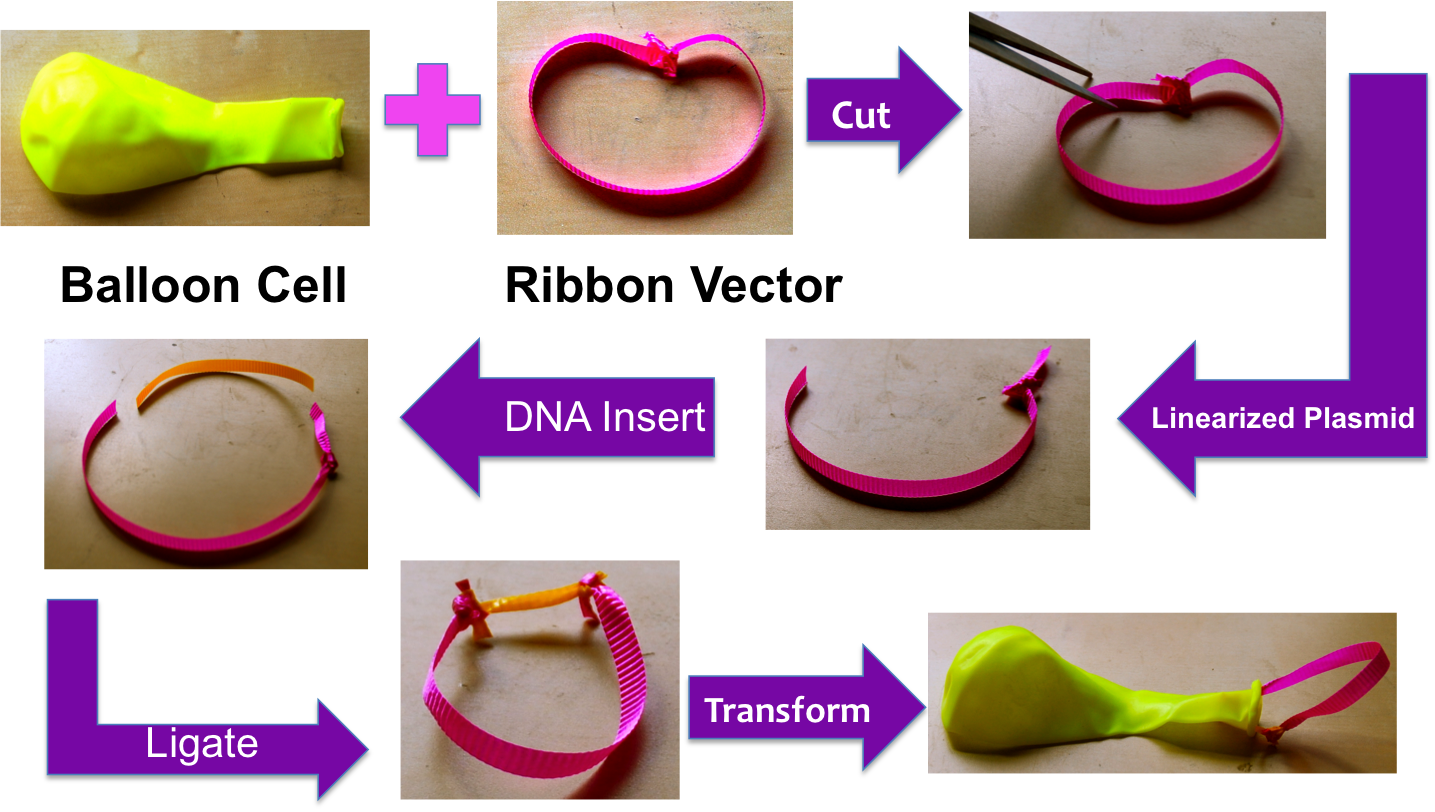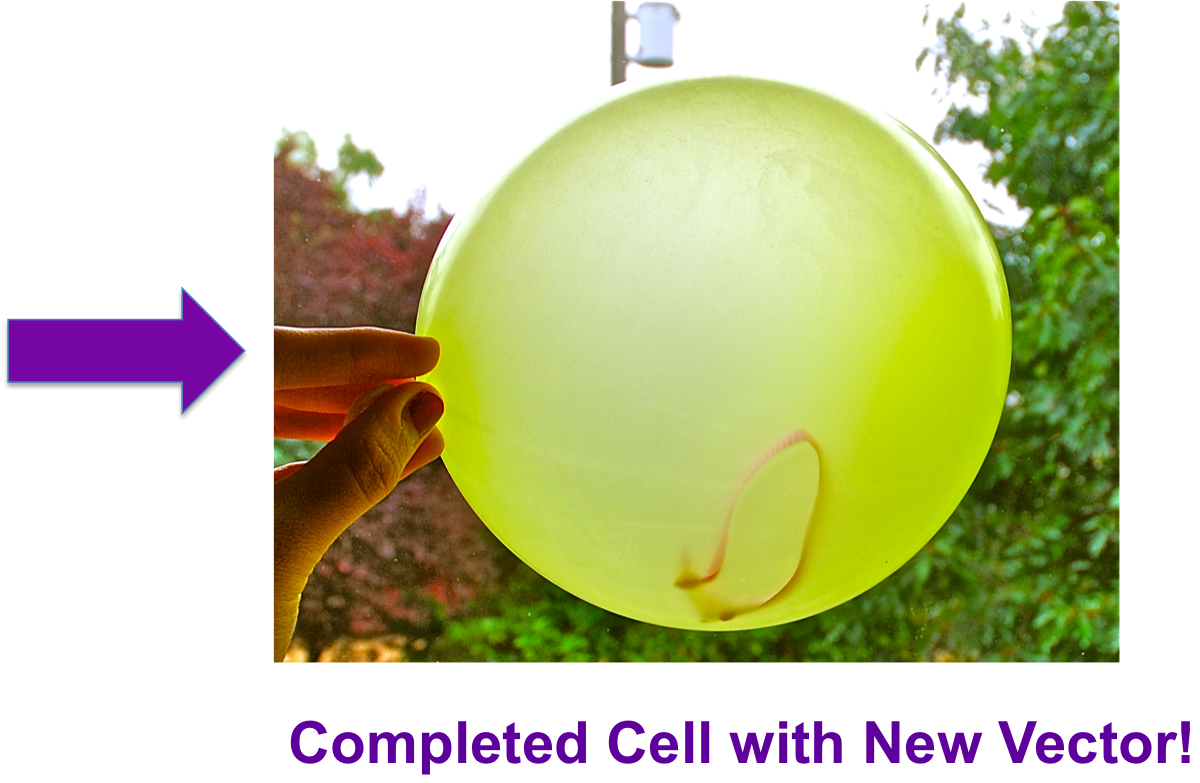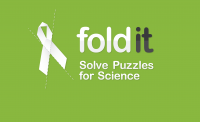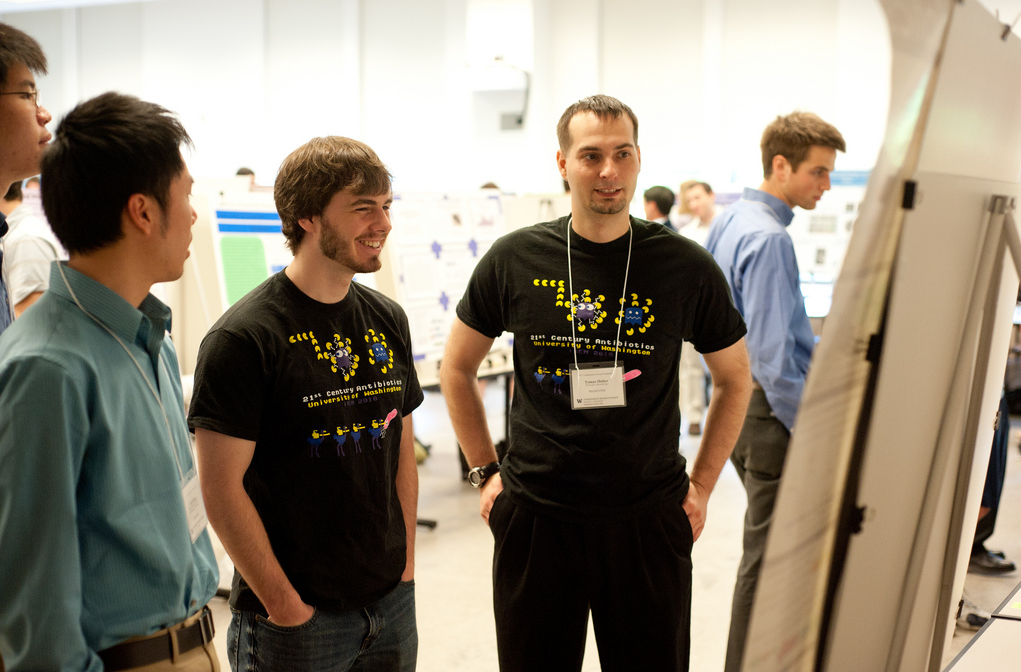Team:Washington/Outreach
From 2011.igem.org
During the off season we took had the opportunity to share our project with our community at both the university level and the K-12 level. The [http://exp.washington.edu/urp/symp/index.html UW Undergraduate Research Symposium], [http://www.engr.washington.edu/alumcomm/openhouse.html UW Engineering Discovery Days], and [http://schoolbennett.org/ysw.aspx Young Scientist Week] took place during the spring.
How we introduced people to the awesomeness of Synthetic Biology
For each of the following events our goal was to help teach young students about the basics of synthetic biology. To do this we brought two primary tools. First, we had an interactive cloning project, in which students were able to "digest" and "ligate" different colored pieces of ribbon together. After making their synthetic ribbon construct, we had them clone the "vector" into the "balloon" chasis of their choice. This is generally illustrated below.
In addition we brought laptops running the interactive protein folding and design computer game Foldit. Using this tool we were able to introduce the students to how proteins functions and ways that we can begin to redesign them. For more information on Foldit please visit the [http://fold.it/portal/ website].
Bellevue School District Bennett Elementary School Young Scientist Week
In April, participants from the 2010 and 2011 iGEM teams joined a multitude of presentations to expand the knowledge of K-5 students, their parents, and elementary school teachers in the general sciences. Presentations included robotics, atmospheric science, bioengineering, and crime scene investigation among other demonstrations along with posters about the experiments the elementary students conducted themselves. For the students, we presented our interactive activity from UW Engineering Discovery Days to teach students about synthetic biology and protein engineering by filling a balloon (representing a cell) with a ribbon (representing a plasmind) as well as allowed them to play with [http://fold.it FoldIt], the David Baker Group's protein folding game. We also displayed our work from 2010 on the Type 6 Secretion System and CapD, a potential anthrax therapeutic, so students could be exposed to recent scientific research.
UW Engineering Discovery Days
Sponsored by the University of Washington College of Engineering, the Engineering Discovery Days is an opportunity for undergraduates to introduce K-12 students to the vast world of engineering. The Engineering Discovery Days functions like an open house with booths spread about campus and is split into two days: day one for elementary and middle schoolers, day two for high schoolers. We partnered with the department of Bioengineering to teach children how synthetic biology works through an activity where the kids fill a balloon (representing a cell) with a ribbon (representing a plasmid). On day two, we introduced high schoolers to the basics of synthetic biology through a poster session with last year's project. Through this event we were able to engage with our local K-12 community and teach them about iGEM.
UW Undergraduate Research Symposium
During the spring, this years team worked with last year's team and participated in the annual University of Washington Undergraduate Research Symposium. This was the first time the iGEM team had participated in this event. The university sponsored event had over 700 student participants and 3500 attendees. The 700 students come from all disciplines, not just the sciences and the attendees include faculty, mentors and our peers. During the symposium, we were able to tell our community about the basics of iGEM and synthetic biology as well as walk them through last year's award winning work. We found this event to be important in rooting the University of Washington iGEM team in our school's undergraduate research community.
 "
"






